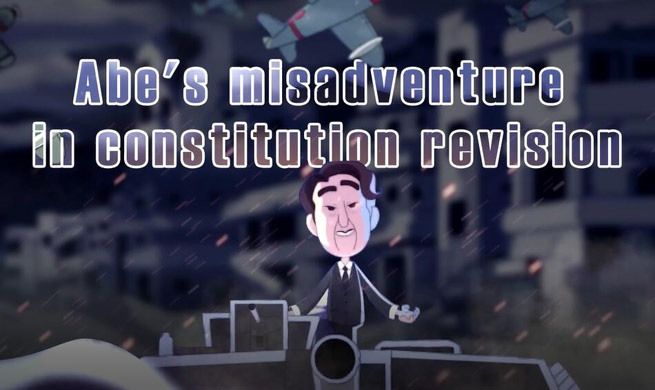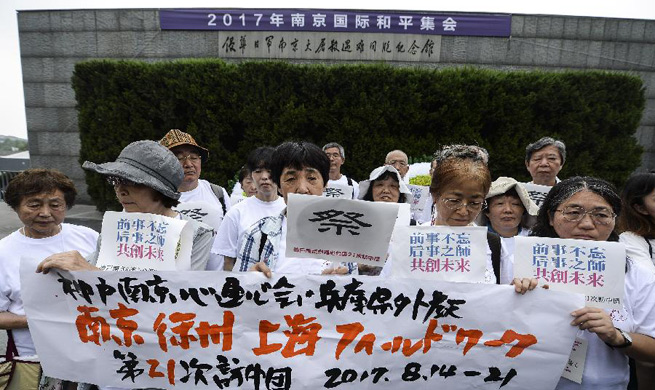by Peter Barker
LONDON, Aug. 15 (Xinhua) -- More than a year after the Brexit referendum vote set Britain on a path to leave the European Union (EU), the economy continues to feel the effects with an inflation rate which continues to easily outstrip wages growth.
Figures from the Office of National Statistics (ONS) on Tuesday showed that UK Consumer Price Index (CPI) inflation was at 2.6 percent for July.
Although the rate remains the same as it was in June, and a fall on the May figure when it touched 2.7 percent, it is a significant rise on the May 2016 figure of 0.3 percent.
The sharp rise since then has been driven by the fallout from the June 23 Brexit referendum vote last year which saw foreign exchange markets react with a sharp fall in the rate of exchange of sterling.
The sharp fall of 15 percent has pushed up the price of imports and the costs of raw materials for manufacturers, and has fed through to UK inflation.
Inflation now easily outstrips wage growth, which increased by 1.7 percent year on year in the three months to the end of April.
Amit Kara, head of UK macroeconomic research at the think-tank the National Institute of Economic and Social Research (NIESR), told Xinhua on Tuesday afternoon: "There is upward pressure on prices in part driven by currency depreciation but the impact of that currency depreciation has not been as great as some had expected."
It was unusual for the UK economy to suffer damaging pass-through after depreciation, as seen in the depreciations of 1939, 1992, and 1997, said Kara.
"For the size of depreciation, which was about 15 percent, the pass-through has been very small, there has been a big pass through for the import price deflator but it vanishes after that," he said.
"Some of the pass-through is still to come through but oil prices have come down recently so that will exert a little bit of downward pressure."
Kara said he expected inflation to continue "creeping a little higher" in the last few months of this year to about 3 percent and then for it to start falling gradually next year.
But he warned, "in the meantime wages are not rising, so there is a persistent squeeze on household disposable income."
This is leading to lower consumer spending, which has been one of the drivers of the economy in the past two years.

















